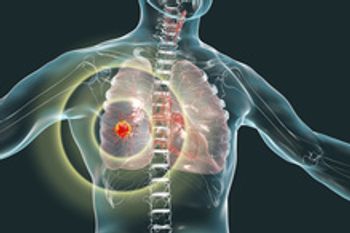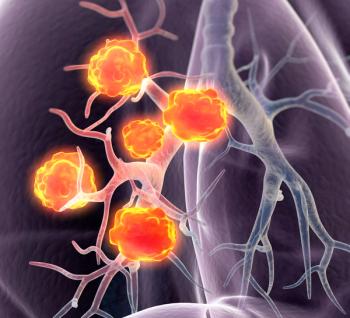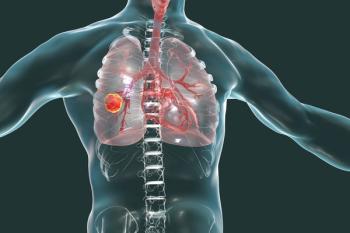
But the 2021 modifications to the US Preventive Services Task Force recommendations do not eliminate the inequalities, analysis shows.


But the 2021 modifications to the US Preventive Services Task Force recommendations do not eliminate the inequalities, analysis shows.

Disease management is moving toward holistic care of the patient in the long term.

Atezolizumab meets its primary endpoint of overall survival for patients with resected non-small cell lung cancer across most subgroups.

Canakinumab did not meet the primary endpoint of disease-free survival in adult patients with stages II-IIIA and IIIB completely resected non-small cell lung cancer.

The 4 academic centers will evaluate the role of telehealth in areas such as prevention, screening, diagnosis, treatment, and survivorship.

Long-term follow up on the KEYNOTE-604 study suggests pembrolizumab plus etoposide/platinum is a superior first-line therapy for small cell lung cancer vs placebo.

Irinotecan liposomal injection (Onivyde) used as second-line therapy for patients with small cell lung cancer did not meet the primary end point of overall survival compared to topotecan.

The Oncomine Dx Target Test is a next-generation sequencing–based companion diagnostic developed to analyze 23 genes associated with non–small cell lung cancer in patients who harbor an activating HER2 mutation.

A new study found that reduced tobacco use lowered deaths, person-years of lost life, and lost earnings across many states nationwide.

The FDA approval of fam-trastuzumab deruxtecan-nxki (Enhertu) to treat HER2 mutant non-small cell lung cancer was based on results from the DESTINY-Lung02 phase 2 trial.

The interim analysis of the TROPION-Lung02 trial demonstrate an overall response rate of 37% in individuals who were treated with datopotamab deruxtecan and pembrolizumab.

IMscin001 analysis shows non-inferior levels of the cancer immunotherapy in the blood compared with intravenous infusion in individuals with advanced non–small cell lung cancer.

Pharmacists have the potential to help optimize treatment and maximize supportive care management for targeted therapies.

Behavioral economics is a tool that can influence patient behaviors using concepts such as choice architecture, nudges, and loss aversion.

The findings of the phase 1b/2 CHRYSALIS-2 cohort will be presented at the International Association for the Study of Lung Cancer 2022 World Conference on Lung Cancer.

The FDA is evaluating the use of adagrasib (MRTX849) to treat patients with non-small cell lung cancer harboring a KRAS G12C mutation who have previously received at least 1 systemic therapy.

Poziotinib is an irreversible pan HER2 inhibitor with activity against mutations of HER1, HER2, and HER4.

Approximately one-third of the individuals had an intracranial response among those with central nervous system metastases.

Treatment's approval marks exciting new development for patients with ES-SCLC to prevent CIM.

About one-third of participants in the phase 1b cohort of the KRYSTAL-1 study show an intracranial response, according to Mirati Therapeutics.

Crizotinib has also been approved to treat non-small cell lung cancer that has spread to other parts of the body and is caused by a defect in either the ALK or ROS1 gene.

Metformin has been shown to decrease pro-inflammatory cytokines that appear to improve the immune response to tumor cells and improve the efficacy of immunotherapy.

Treatment identifies patients with ROS1 fusion-positive non-small cell lung cancer or those with NTRK fusion-positive solid tumors for whom treatment with Rozlytrek may be appropriate.

Social determinants of health (SDOH), which include social, economic, and physical conditions, have a major impact on people’s health, wellbeing, and quality of life.

Selpercatinib (Retevmo, Loxo Oncology) is FDA-approved to treat 3 types of tumors—metastatic RET fusion-positive non-small cell lung cancer, advanced medullary thyroid cancer (MTC) or MTC that has spread, and advanced RET fusion-positive thyroid cancer.